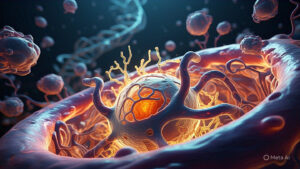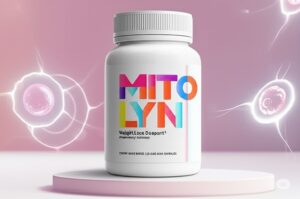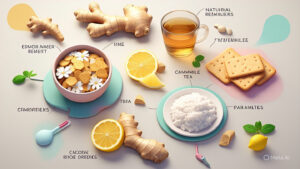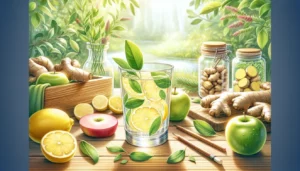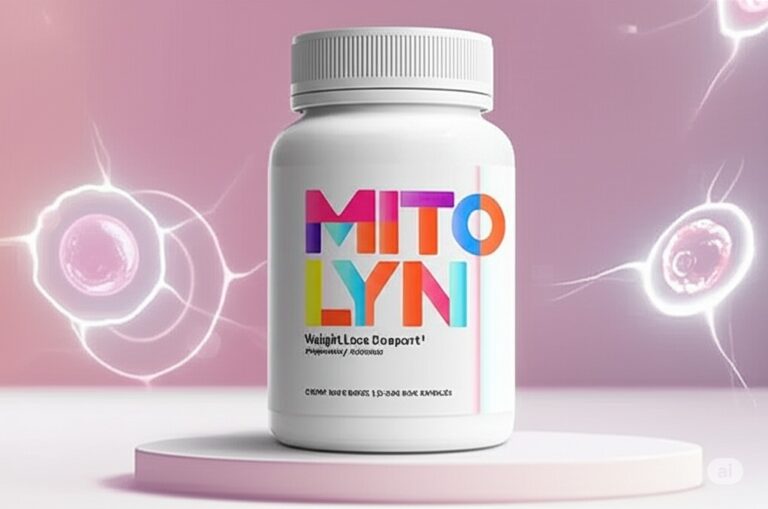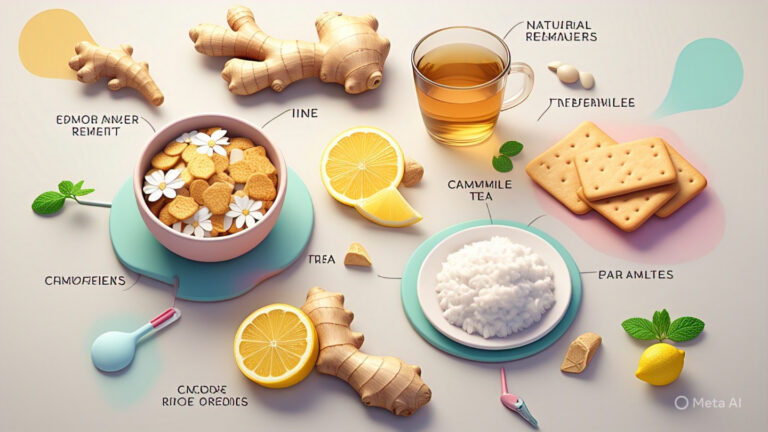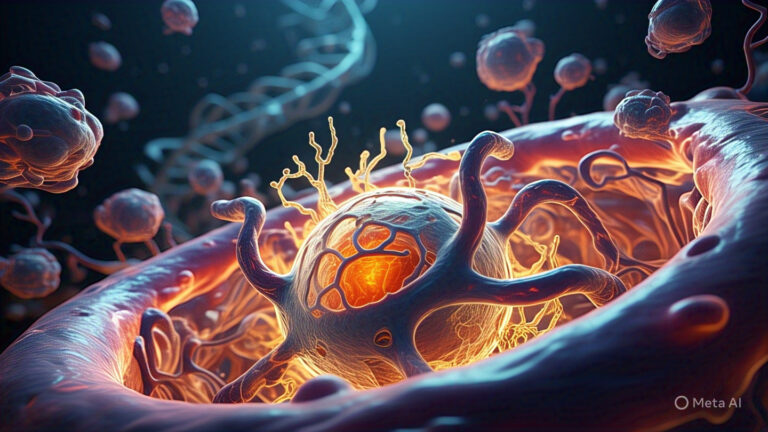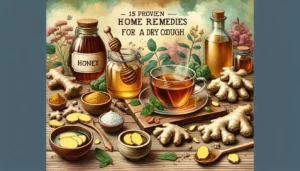Home Remedies for Managing Herpes: Safe and Natural Solutions (2025)
Estimated reading time: 10 minutes
Key Takeaways
- Herpes (HSV-1 and HSV-2) is a lifelong condition with no cure, but home remedies can ease symptoms.
- Natural options like aloe vera, Epsom salt baths, and lysine-rich foods may reduce discomfort.
- Lifestyle changes, such as stress management and hygiene, help prevent outbreaks.
- Always consult a doctor for severe symptoms or during pregnancy to ensure safety.
- Emotional support is vital—don’t hesitate to seek help for mental health challenges.
Table of Contents
- Introduction to Herpes and Home Remedies
- Important Disclaimer: Herpes Is Not Curable
- Understanding Herpes: Triggers and Symptoms
- Effective Home Remedies for Herpes Symptom Relief
- Lifestyle Strategies to Prevent Herpes Outbreaks
- What to Avoid: Unsafe Practices and Misleading Claims
- When to Seek Medical Help for Herpes
- Emotional and Mental Health Support for Herpes
- Frequently Asked Questions (FAQs) About Herpes Management
- Additional Resources for Herpes Support
Introduction to Herpes and Home Remedies
Living with herpes can feel overwhelming, but you’re not alone in this journey. At WikiHomeRemedies, we understand the desire for natural ways to manage symptoms and find relief. While a cure for herpes isn’t possible, effective home remedies can ease discomfort and help prevent outbreaks. Our goal is to guide you with trustworthy, science-backed insights.
Herpes, caused by HSV-1 (often oral cold sores) or HSV-2 (typically genital herpes), is a lifelong condition affecting many worldwide. The World Health Organization notes that about 1 in 6 people globally carry HSV-2. It’s common to seek natural solutions for privacy, cost, or as a complement to medical care. We’re here to offer safe, practical options. For more on managing related conditions naturally, check out our guide on cold sores.
This article explores remedies for both HSV-1 and HSV-2, focusing on soothing symptoms and reducing outbreak frequency. Whether you’re dealing with painful sores or seeking prevention tips, we’ve got you covered with gentle, informed guidance. Let’s walk through this together, empowering you to find comfort in nature’s healing potential.
Important Disclaimer: Herpes Is Not Curable
Before we dive into remedies, let’s set clear expectations. Herpes, whether HSV-1 or HSV-2, remains a chronic viral condition without a cure, as confirmed by the World Health Organization and the National Institutes of Health. This lifelong virus stays dormant in the body, flaring up at times.
Home remedies can play a valuable role in easing symptoms like pain or itching. However, they don’t eliminate the virus itself. Think of these solutions as supportive tools for comfort, not a replacement for medical insight.
If symptoms worsen or become severe, reaching out to a healthcare provider is vital. Your safety comes first, and professional guidance ensures proper management. We encourage blending natural approaches with expert advice for the best care. Let’s proceed with this understanding as we explore ways to manage discomfort. For additional insights on managing similar viral conditions, see our article on herpes virus symptom relief.
Understanding Herpes: Triggers and Symptoms
Knowing what sparks a herpes outbreak can help you take control. Herpes often flares up due to specific triggers, unique to each person but with common patterns. Recognizing these can guide you toward timely remedies and prevention.
Common triggers include stress, which taxes the body, and fatigue from poor sleep. Hormonal shifts, like those during menstruation, can also play a role. A weakened immune system, perhaps from illness, and sun exposure, especially for oral herpes, often provoke symptoms. Identifying your personal triggers helps in staying ahead.
Symptoms vary slightly between oral and genital herpes but share core traits. You might notice painful blisters, itching, or a burning sensation before sores appear. These can last days to weeks, causing discomfort. Understanding these signs lets you act quickly with soothing solutions, setting the stage for the natural remedies ahead. For related skin irritation issues, explore our tips on managing skin itching.
Effective Home Remedies for Herpes Symptom Relief
Natural remedies can offer meaningful relief when herpes symptoms strike. Below, we explore safe, practical options backed by anecdotal experiences and preliminary research from trusted sources like WebMD and NIH. Each remedy includes usage tips and precautions to keep you informed and secure.
Aloe Vera Gel for Soothing Sores
Aloe vera’s cooling touch can calm irritated skin during an outbreak. Known for calming inflammation, it helps reduce redness around sores. Studies from the NIH highlight its skin-healing benefits, making it a go-to for many.
Apply pure aloe vera gel directly to clean, dry sores using a cotton swab. Use it 2-3 times daily for best results, but first, test a small patch of skin to rule out allergies. Look for high-quality, pure aloe vera gel to ensure you’re getting nature’s best.
Cold and Warm Compresses for Pain Relief
Temperature can be a simple ally against herpes discomfort. A cold compress cuts down swelling and numbs sharp pain, while a warm compress relaxes tense areas. Healthline often recommends this straightforward approach for quick relief.
Wrap ice in a clean cloth for a cold compress, or soak a cloth in warm water for heat. Apply either to the affected spot for 10-15 minutes, taking care not to overdo it. Alternate between cold and warm as needed to find what eases your symptoms most.
Epsom Salt Baths for Genital Herpes Relief
For genital herpes, an Epsom salt bath can cleanse and calm the area. It helps with itching and keeps sores clean during outbreaks. Many users, as noted by Medical News Today, find this method comforting.
Add 1-2 cups of Epsom salt to a warm bath and soak for about 15 minutes. Avoid overuse, as it can dry out skin if done too often. Pat the area dry gently afterward to minimize irritation.
Tea Tree Oil (Diluted) for Antiviral Support
Tea tree oil carries potential antiviral traits that may support skin recovery. Small studies on PubMed point to its ability to fight certain pathogens. Still, it must be used with caution due to its strength.
Always dilute tea tree oil with a carrier like coconut oil—about 1-2 drops per teaspoon. Apply sparingly to sores with a cotton bud, avoiding overuse to prevent irritation. Opt for pre-diluted solutions from trusted sources for safer application.
Oatmeal Baths for Skin Irritation
An oatmeal bath can quiet down irritated skin with its gentle texture. It’s a time-tested way to relieve itching, often suggested by the Cleveland Clinic for various skin woes. This works well during active outbreaks.
Mix 1 cup of colloidal oatmeal into a warm bath and soak for 15-20 minutes. Use it as often as needed when symptoms peak. Keep the water lukewarm to avoid further skin stress. For more on soothing skin irritations, read our guide on natural burn relief.
Lysine-Rich Foods and Supplements
Lysine, an amino acid, might lower outbreak frequency for some. Research from the NIH suggests it could counteract the virus’s spread in the body. Dietary changes are a natural starting point.
Incorporate foods like fish, yogurt, and legumes into meals. If considering supplements, consult a doctor to confirm safe dosages. Trusted brands can be a good resource, but professional input ensures you’re on the right track.
Vitamin C and Zinc for Immune Boosting
Supporting your immune system aids healing during outbreaks. Vitamin C and zinc stand out for their role in skin repair and defense, per NIH guidelines. Simple diet tweaks can make a difference.
Eat citrus fruits, bell peppers, nuts, and seeds for natural sources. If using supplements, stick to recommended limits to avoid side effects. Small, consistent steps help bolster your body’s resilience over time.
Lemon Balm for Cold Sores
Lemon balm shows promise for oral herpes with its antiviral edge. Small trials cited on WebMD note faster healing of cold sores with its use. It’s a gentle herb worth exploring.
Apply lemon balm cream to sores or use a cooled tea compress several times daily. Look for products with clear ingredient lists to ensure purity. It’s a subtle yet supportive option for HSV-1 flare-ups.
Echinacea for Immune Support
Echinacea has long been tied to immune health, though its direct impact on herpes is less studied. Mayo Clinic recognizes it for general wellness support. It might help indirectly by fortifying your system.
Try echinacea as a tea or tincture, following package guidance. Don’t expect it to target herpes specifically, but rather to aid overall vitality. Pair it with other remedies for a broader approach.
Lifestyle Strategies to Prevent Herpes Outbreaks
Beyond remedies, how you live day-to-day can shape outbreak patterns. Addressing triggers through simple habits reduces flare-ups and boosts well-being. Let’s walk through key strategies to keep herpes at bay.
Stress Management Techniques
Stress often lights the fuse for outbreaks, as Healthline studies show. Calming your mind can break this cycle. Simple practices fit easily into busy days.
Try meditation for 5 minutes, focusing on steady breaths. Yoga or journaling also unloads tension—pick what feels right. Even small moments of calm can lessen stress-driven symptoms.
Supporting Your Immune System
A strong immune system fights outbreaks before they start. The CDC stresses basics like sleep and hydration for health. These aren’t hard to weave into life.
Aim for 7-8 hours of rest nightly and drink plenty of water daily. A balanced diet with fruits and vegetables fuels your defenses. Consistency in these habits builds a solid foundation.
Hygiene Practices to Avoid Irritation
Good hygiene prevents worsening sores and spread, per Mayo Clinic advice. Cleanliness around sores matters most during outbreaks. It’s about protecting yourself and others.
Keep the area clean and dry, using mild soap if needed. Don’t share towels or personal items during flare-ups. For genital herpes, barrier protection during intimacy helps limit transmission.
Avoiding Common Triggers
Dodging known triggers cuts outbreak risks significantly. Sun exposure often sparks oral herpes, while hormonal shifts can affect genital cases, notes WebMD. Awareness guides your actions.
Wear sunscreen or lip balm with SPF for HSV-1 prevention. Track cycles if hormones seem tied to flare-ups and consult a doctor for tailored advice. Small adjustments can yield big results. For additional tips on managing stress-related triggers, see our stress relief guide.
What to Avoid: Unsafe Practices and Misleading Claims
Not every remedy or product marketed for herpes is safe. Misleading promises of “miracle cures” can waste time and harm health. The Cleveland Clinic and FDA warn against unverified claims.
Steer clear of undiluted essential oils or harsh chemicals on sores—these can burn skin. Ignore ads claiming to erase the virus; no such cure exists. Delaying medical care for severe symptoms risks complications, so trust your instincts.
Scams prey on hope, often pushing costly, useless solutions. Stick to remedies with credible backing or anecdotal trust. Your well-being deserves careful, informed choices over quick fixes.
When to Seek Medical Help for Herpes
Home remedies help, but some situations call for a doctor’s expertise. Knowing when to step beyond natural solutions keeps you safe. Let’s cover clear signs that need attention.
Seek care for a first outbreak to confirm diagnosis and get guidance. Severe pain, frequent recurrences, or sores near the eyes warrant immediate help. If pregnant, consult a provider—herpes can affect newborns. The NIH highlights antivirals like acyclovir as key treatments, with remedies as support.
Worried about privacy? Many clinics offer confidential care, and telehealth provides discreet options. You deserve support without judgment, so don’t hesitate to reach out when needed.
Emotional and Mental Health Support for Herpes
Herpes can weigh on more than just the body—it touches emotions too. Feelings of anxiety or isolation are real and valid. You don’t have to face them alone.
Talking with a trusted friend or joining a support group can lighten the load. Organizations like the American Sexual Health Association offer resources and anonymous spaces to connect. Counseling helps if stigma feels heavy—consider it a step toward peace.
Remember, this condition doesn’t define you. Focus on self-care and reach out for help when needed. Healing emotionally is just as vital as soothing physical symptoms.
Frequently Asked Questions (FAQs) About Herpes Management
Curious about managing herpes naturally? We’ve gathered common questions to clarify doubts with straightforward answers, grounded in credible insights.
Can home remedies cure herpes?
No, they cannot. Herpes is a lifelong virus, but remedies can soothe symptoms and reduce outbreak discomfort effectively.
What are herpes outbreaks?
These are periods when the virus reactivates, causing sores or pain. Frequency varies, often tied to triggers like stress or illness.
Which foods help with herpes management?
Lysine-rich options like fish and yogurt, alongside immune boosters like citrus or nuts, support the body during outbreaks.
Are natural remedies better than medications for herpes?
They’re not a replacement. Medications like antivirals target the virus directly, while remedies ease symptoms as a complementary approach.
Additional Resources for Herpes Support
Want to learn more or seek support? Below are trusted resources for further guidance on managing herpes with confidence.
- World Health Organization (WHO) for global herpes data and insights.
- National Institutes of Health (NIH) for research on treatment options.
- WebMD and Mayo Clinic for practical tips on symptom relief.
- American Sexual Health Association (ASHA) for emotional support and anonymous helplines.
- Explore related WikiHomeRemedies articles like “Stress Relief Tips” or “Immune-Boosting Diets” for holistic care.
These sources empower you with knowledge and connection. Dive in to continue your journey toward well-being with reliable companions.
